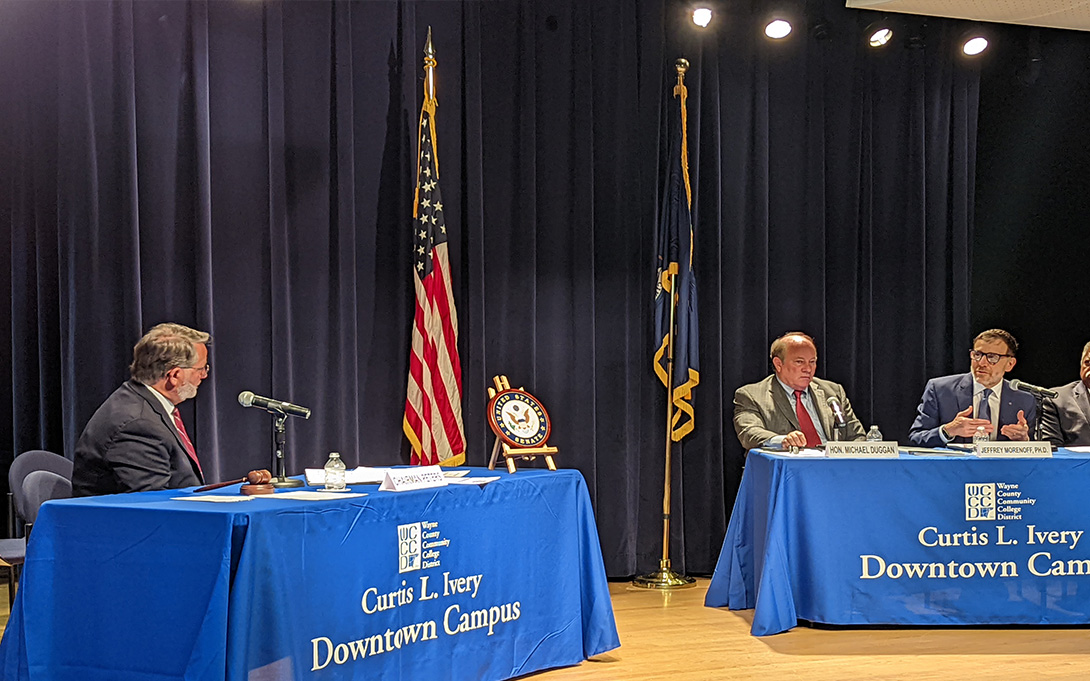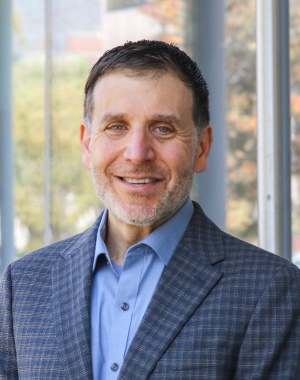
The results of the 2020 Census have generated debate across the country, but perhaps nowhere as intensely as in Detroit. Michigan’s largest city, which has an overwhelming majority of African American and Hispanic residents combined of 85%, may have been undercounted by as much as eight percent, affecting the loss of millions of dollars in state and federal aid.
Those findings are among the most important in an analysis spearheaded by Ford School professor Jeffrey Morenoff, which were highlighted in a field hearing of the Senate U.S. Homeland Security and Governmental Affairs Committee, chaired by Sen. Gary Peters (D-MI) in Detroit.
“I’m convening this hearing in Detroit to give a platform to the communities who are most affected by these problems, and to discuss the steps the Census Bureau can take to ensure we can support every Michigander, regardless of their economic or social circumstances,” Peters said in opening remarks for the hearing, "Reviewing the 2022 Census: Local Perspectives in Michigan." “This impacts the residents of the City of Detroit in a significant way,” he said. “Each individual who is counted represents roughly $1,800 in federal resources each year. The money goes into infrastructure, health care and education programs. We’ve got to make sure we get this right.” The total loss from state revenue sharing could be as much as $10 million per year.
Detroit Mayor Mike Duggan said the undercount was the result of “systemic racism” in the government’s approach to officially determine the city’s population. The 2020 Census recorded Detroit’s population at roughly 639,111 residents, a 10.5% decrease from the 2010 count. In 2019, the Census Bureau estimated Detroit had 670,000 residents. Duggan has said he believes that the city’s population is closer to 700,000, which would represent Detroit’s first population increase in seven decades.
Speaking after the mayor, Morenoff described the research, "Analysis of the Census 2020 Count in Detroit," which was cited by Peters and Duggan as essential to understanding the scope of the problem. Peters entered the study into the official record of the hearing.
He described subsequent research as well, referring to a housing audit conducted as part of the City of Detroit's submission to the Census Bureau's Count Question Resolution Program (CQR). “Our research involved an extensive visual housing audit of over 114,000 addresses located within over 4,000 census blocks where the City of Detroit was challenging the housing count. The audit reveals that the 2020 Census undercounted the number of housing units on 70% of census blocks we reviewed. Simply put, the census failed to count over 78,000 housing units on these blocks,” Morenoff testified. “The field operation in Detroit started late, ended prematurely, and was inadequately staffed and supervised.”
Morenoff cited several challenges to the census, including the pandemic, the proposed question on citizenship which caused confusion, a lack of follow-up to non-respondents, and the Census Bureau not working effectively with local entities. Detroit was distinct from other large cities because its population and housing counts both dropped severely, he said. Morenoff said research shows areas with lower self-response rates, including majority minority areas, tend to have a worse undercount.
Peters praised the work that U-M had done, calling it “incredibly comprehensive and useful.”
As the hearing turned to possible solutions, Duggan called for an appeal process, which could use objective, verifiable data, including studies like the U-M analysis, as well as records from utilities like DTE, housing permits, the postal service, and other city-wide data.
Duggan quipped, “To me, the Census Bureau numbers in Detroit [have] proven the existence of ghosts. DTE has 280,000 housing units that are paying their light and gas bill, the Census Bureau says we have fewer than 255,000 households. Who’s occupying these other 25,000 households? There’s two possibilities: We’ve either been invaded by a group of ghosts or the Census Bureau data is wrong.”
The report was produced by U-M and Wayne State University (WSU) researchers, including Patrick Cooney and Samiul Jubaed from Poverty Solutions, Ford School lecturer Ren Farley, Kurt Metzger, founder and director emeritus of Data Driven Detroit, Lisa Neidert, lecturer in the U-M Department of Sociology and Ford School adjunct faculty, and Ramona Rodriguez-Washington, program director at the Center for Urban Studies at WSU.
The hearing can be seen here.
Media coverage of the hearing
- Detroit mayor: 2020 U.S. Census effort carried out ‘systemic racism’, Michigan Advance, July 26, 2022
- Duggan: Either Detroit ‘ghosts’ are real, or 2020 census is wrong, Bridge Detroit, July 25, 2022
- Lack of resources, racial disparities among reasons behind 2020 census undercount, Michigan organizers tell feds, MLive, July 25, 2022
- Duggan says Detroit wants 'fair' chance to correct census undercount, Detroit Free Press, July 25, 2022
- Detroit, Michigan leaders push to challenge census count, Detroit News, July 25, 2022
